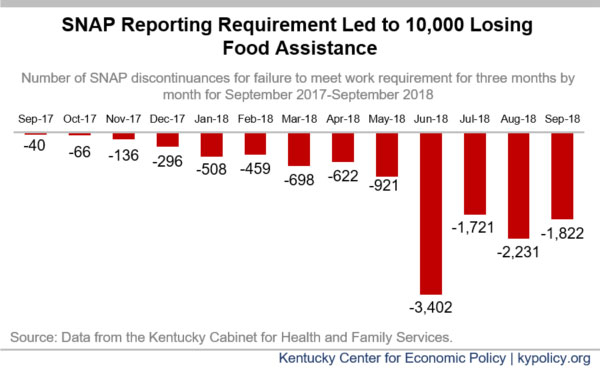
March 27, 2019; Grit Post
The drive to attach work requirements to health care benefits continues, as rumblings of attempts to dismantle Obamacare resurface. In the courts, at least, so far those who would impose work requirements are getting no joy.
After ruling against a work requirement for Medicaid last June, US District Judge Boasberg, who called the requirements “capricious and arbitrary,” sent them back to the US Department of Health and Human Services (HHS). HHS then approved them with no changes, and Kentucky planned to implement them once again. Once again, Judge Boasberg ruled against the work requirement mandate—and, once again, HHS will consider the work mandate for low-income residents who work but still cannot afford the cost of healthcare.
Sign up for our free newsletters
Subscribe to NPQ's newsletters to have our top stories delivered directly to your inbox.
By signing up, you agree to our privacy policy and terms of use, and to receive messages from NPQ and our partners.
This ruling also extends to a program in Arkansas NPQ covered in September, one that already cost more than 18,000 their Medicaid coverage. For a variety of reasons, ranging from poor access to technology to misunderstanding how the program worked to a change in their work circumstances, these people couldn’t or didn’t participate in the plan and were punished for it.
This leads to a dilemma: a federal administration looking to reduce the number of people drawing on Medicaid, with state leadership seeking to accommodate them, and a federal court system that keeps ruling that the goal of moving poor people off subsidized healthcare through work requirements is impermissible and sending HHS back to the drawing board.
With the expansion of Medicaid in many states, governors are finding themselves between a rock and a hard place when it comes to providing healthcare for their states’ low-income residents. Brandon Howard, writing for Grit Post, notes that Kentucky’s Governor Matt Bevin “wants to overhaul the Obamacare expansions in Kentucky (dubbed KYnect), which would reduce the number of those enrolled in Medicaid by 95,000. If Bevin makes good on his threat to undo Medicaid altogether in the commonwealth, more than 400,000 low-income families could be without health benefits.”
As the Trump administration threatens the total dismantling of the Affordable Care Act without options for what will go in its place, the outlook for the health and well-being of the poor in this nation is of great concern. At their core, the programs in Kentucky and Arkansas express the idea that work should lift you out of poverty. So far, it does not seem to be working. Perhaps the leadership in these and other states need to look at those findings and understand that minimum wage jobs will not support families and there is more to eradicating poverty than just moving people off welfare programs. Otherwise, expect more losses in the courts and continued poverty in your states.—Carole Levine











